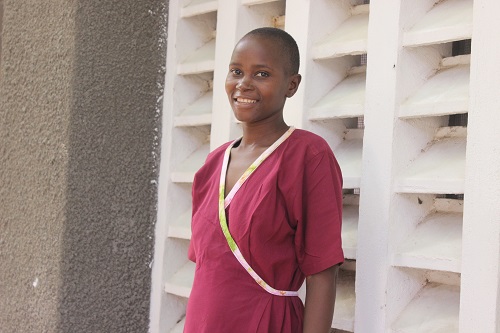Sauda’s Story
Case Study
Sauda is 31-years-old and lives in Southern Tanzania with her husband and two children. She became pregnant with her third child, and when it was time for her delivery, she began her labor at home. After some time passed without any progress, her husband rushed her to the nearest local hospital.
Sauda arrived at the hospital early in the morning and was examined by a nurse who told her to be patient as she would deliver ‘anytime’.
“I then waited for nine hours without being attended,” Sauda says. “I became so tired and weak. I could not feel any movement of my child in the womb. After those nine hours the nurse came to tell me she thought I would have delivered sooner. She didn’t think she had capacity to help me anymore and gave me a referral to another hospital. When I arrived at the district hospital, the doctor told me to wait because there was another patient in the theater. He advised that when they finished with her I would go.”
After more waiting, Sauda was taken into surgery. It was now 8 o’clock at night. Her stillborn baby was delivered via Caesarean section. After the C-section, Sauda was taken to the ICU for four days where she remained unconscious. She had lost a lot of blood and was very pale and weak.
“When I woke up I asked the nurse, where is my child? It was then that I found out it was stillborn.” As if the emotional pain of losing her baby was not enough, Sauda started to leak urine steadily. The nurses inserted a catheter but as they removed it she was still leaking. Sauda did not know what was happening to her. The doctors told her she had fistula, but they didn’t know where she could be treated and did not have capacity to correct it themselves.
“When they mentioned to me that I had fistula CCBRT came into my mind,” Sauda says. “I remembered hearing that they treated fistula through the radio, but I did not memorize the numbers to call.”
Sauda was discharged, and went to her parents’ house to recover. In her parents’ village, the news spread that Sauda had fistula. Some neighbors visited her and discouraged her from seeking treatment, but Sauda was determined to go to CCBRT.
One day her brother in-law – who had been to CCBRT to get a prosthetic device for his child – met Sauda and her husband. He told them he had the phone number of a doctor who worked at CCBRT. He made the call, and the doctor explained to them that if Sauda received a C-section she should come to CCBRT in three months, when her wound is completely healed. Sauda took the doctor’s advice and came to CCBRT after three months.
Today, she has received repair surgery and is now recovering.
Sauda wants to help others get the care she did. “I would like to be an ambassador and explain to other fistula victims what I have gone through, so that they are aware of fistula and where to get free treatment. They should not feel discriminated against and should not isolate themselves from society.”
This is just the beginning of a fistula-free life for Sauda. Happy with the treatment she’s received at CCBRT and thankful to the supporters who have made it possible, she is looking forward to returning home and working on their farm with her husband.



